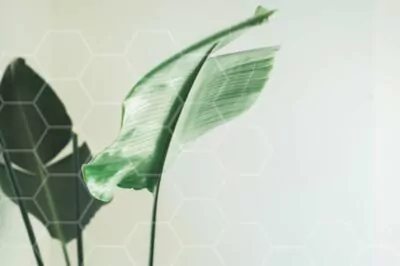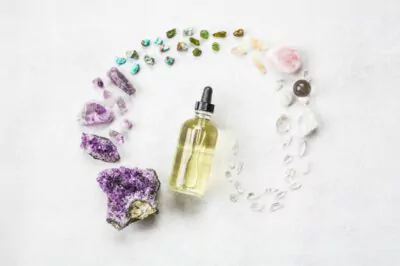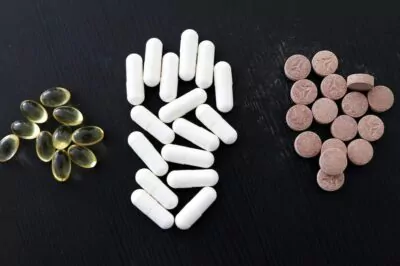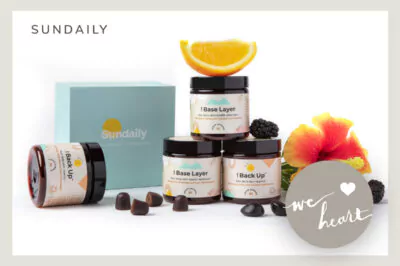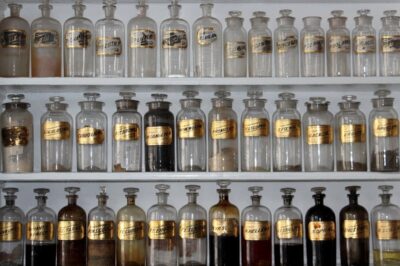In the buzzing realm of wellness, antioxidants are praised for their powerful, age-defying effects on the skin and body. We hear the term “antioxidant” in abundance these days, knowing that the food and skin care products rich in these compounds is what we should be looking for. But do you ever ask yourself what antioxidants actually are, and what purpose they serve in achieving optimal health?
To make it simple, antioxidants are nature’s defensive armor. They are naturally occurring compounds found in many foods and plants, like your popular vitamin C (found in fruit) or your vitamin E (found in nuts and seeds). Their prime purpose is to protect your skin and body from environmental stressors such as sun, pollution and other harmful substances, also known as free radicals.
Antioxidants are also produced internally by our bodies, though not enough to neutralize the effects of free radicals. This is why it’s important to eat a diet rich with them to strengthen your natural defenses. Your skin is also the last organ to receive nutrients from your diet, so applying antioxidants to the skin topically is necessary for enhancing skin vibrancy.
While there are thousands of compounds in nature that act as antioxidants, the spotlight is on a remarkably effective one called astaxanthin, our newest infatuation. This high-performing, powerhouse antioxidant is the real deal when it comes to ultimate skin and body protection.
Introducing: Probiotic Serum with Tremella
Tremella Mushroom Ingredient Spotlight
How to Choose the Best Serum For Your Skin
Where does it come from?
Astaxanthin is primarily found in the aquatic kingdom. In marine mammals, this includes krill, salmon, red trout, shrimp, crawfish, lobster and crabs. The richest source of this antioxidant however is found in Haematococcus pluvialis, a microalgae that produces more than 40 grams of astaxanthin for every 1 kilogram of dry biomass.
Astaxanthin is what gives salmon and crustacean species their rich pink color, as they feed upon astaxanthin-rich species in their diets. This compound is even added to commercial feed for farmed fish to enrich their coloring. Another fun fact: baby flamingos are born white, but because they eat a diet accompanied by this antioxidant, they turn pink as they grow. That’s right – astaxanthin is what turns flamingos pink!
Astaxanthin for the body
At a glance, astaxanthin is considered the most potent carotenoid antioxidant found in nature. It is broad-spectrum, demonstrating therapeutic qualities for eye, heart, brain and skeletal health, along with many other systems.
Eye Health
It has been concluded that carotenoids help protect the retina of the eye from oxidative damage. Astaxanthin supplementation can improve certain eye conditions like ARMD (age-related macular degeneration), glaucoma and inflammatory issues like retinitis, iritis, keratitis and so on.
Heart Health
Studies have shown an increase in HDL cholesterol (aka “the good” cholesterol) by 15 percent and a reduction of triglycerides by up to 25 percent in patients that consumed 12 mg of astaxanthin taken daily for several weeks. In another human clinical study, volunteers were given 6 mg of astaxanthin per day for ten days, showing an improvement in blood flow which has a positive effect on cardiovascular health.
Brain and cognitive health
Scientists consider this powerful antioxidant to be potent “brain food” and assert that it could hinder neurodegeneration like dementia or Alzheimer’s.
Joint and skeletal health
There have been testimonials of significant benefits from athletes who supplement with astaxanthin to increase endurance. In a Japanese study, scientists discovered decreased muscle inflammation in rats by more than 50 percent!
There are many notable clinical studies done on the powerful effects of astaxanthin and we encourage you to indulge in the the ever-growing research behind this amazing compound!
Astaxanthin for skin
When taken orally, astaxanthin essentially provides the same benefit when applied topically. Being one of the most potent antioxidants available, it provides protective armor against harmful elements that could otherwise deteriorate skin integrity overtime.
Studies have shown that astaxanthin is 65 times more powerful than vitamin C, 54 times more powerful than beta-carotene, and 14 times more powerful than vitamin E! What more could you ask from nature to help your skin delay the formation of fine lines and wrinkles?
In 2002, a Japanese study showed that women around the age of 40 who were given 2 mg of astaxanthin daily for 4 weeks showed major skin improvement: enhanced skin suppleness and firmness, reduced appearance of brown spots and uneven skin tone and an increase in overall skin moisture and hydration.
This ingredient has been incorporated into many expert formulated skin care products, which is why we decided to include a high-quality, algae source of it in our newest product: Probiotic Serum with Tremella.
Sources:
Wataru Aoi, Yuji Naito, Kunihiro Sakuma, Masashi Kuchide, Harukuni Tokuda, Takashi Maoka, Shinya Toyokuni, Shigenori Oka, Masahiro Yasuhara, Toshikazu Yoshikawa. “Astaxanthin Limits Exercise-Induced Skeletal and Cardiac Muscle Damage in Mice.” Published Online: 5 Jul 2004. https://doi.org/10.1089/152308603321223630
Hiromi Miyawaki, Jiro Takahashi,, Hiroki Tsukahara, and Isao Takehara. “Effects of Astaxanthin on Human Blood Rheology.” J Clin Biochem Nutr. 2008 Sep; 43(2): 69–74.
Bob Capelli, Heng Shao, PhD. “Astaxanthin & Cardiovascular Health”. BGG North America, Inc. 2016. White paper study.
Yoon H-S, Cho HH, Cho S, Lee S-R, Shin M-H, Chung JH. Supplementing with Dietary Astaxanthin Combined with Collagen Hydrolysate Improves Facial Elasticity and Decreases Matrix Metalloproteinase-1 and-12 Expression: A Comparative Study with Placebo. Journal of medicinal food.2014;17(7):810-816.
[Yamashita, E. (2002). “Cosmetic Benefit of Dietary Supplements Containing Astaxanthin and Tocotrienol on Human Skin.” Food Style. 21 6(6):112-17]
Kumi Tominaga, Nobuko Hongo, Mayuko Fujishita, Yu Takahashi, and Yuki Adachi. “Protective effects of astaxanthin on skin deterioration.” J Clin Biochem Nutr. 2017 Jul; 61(1): 33–39.
“Astaxanthin & Key Carotenoids: Creating Leading Edge Eye Healthcare Formulations.” Dr Rudi E. Moerck. Link to presentation.
“Astaxanthin and eye health: the newest carotenoid dietary supplement solution..” The Free Library. 2008 Via Media Ltd. 24 Apr. 2018 https://www.thefreelibrary.com/Astaxanthin+and+eye+health%3a+the+newest+carotenoid+dietary+supplement…-a0199464692
Podcast with Dr. Robert Corish “Astaxanthin, the World’s Strongest Antioxidant


